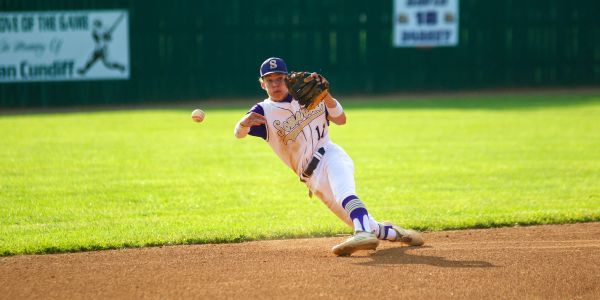What does it take for kids to perform at their peak during playoffs?
Pressure increases a notch in the playoffs. A loss during the regular season is just a loss, just one game. However, in the playoffs, one game may be the difference between going home or going to the championship.
Elite athletes can regulate the pressure, while other players have difficulty controlling how they experience pressure.
Four factors help players perform at their peak during the playoffs. These four interrelated factors help sports kids regulate pressure so they can perform their best given the circumstances:
- Mindset – Kids should not make the game too big or try to be playoff heroes. The key for young athletes is to understand and carry out their role to the best of their abilities.
- Focus – Young athletes should stay present and look for opportunities to make plays in the moment. Competing in the present minimizes worry about making mistakes or losing the game.
- Preparation – Kids need to prepare in the same manner as they have all year. They should try to normalize the game to prevent becoming overwhelmed by the moment.
- Confidence – While each of the three previous tops impact confidence, it’s still essential for sports kids to ensure they feel confident. To achieve this, many elite athletes visualize previous successful performances or performing at their peak before a game to keep their confidence high.
If kids embrace these four mental strategies, they will minimize distractions and perform confidently in the playoffs.
Throughout the first five games of the 2024 NHL playoffs, New York Rangers center Mika Zibanejad has consistently produced despite the pressure.
Zibanejad has 10 points in five games (three goals and one assist) and is tied for second in postseason scoring.
Examining Zibanejad’s mindset, you can understand why he has played at a high level during the playoffs.
“I go out there and try to do my best and do whatever I can in that situation. If things are not clicking offensively, I know I have other areas I can contribute,” he said.
“I think in terms of the goals and the points for an offensive guy they will come, I’ve been just trying to focus on doing the right things and when I have a chance to attack the game.”
It’s not just how Zibanejad has played in the playoffs but how he prepares for each game.
Ranger teammate Jack Roslovic points to Zibanejad’s preparation as the key to his peak playoff performance.
“It’s not easy to score big points in the playoffs so for [Zibanejad] to do that at this time of the year is important,” Roslovic said. “You see him in practice, his preparation; I don’t think anyone should be surprised at what he’s doing.”
Kids achieve peak playoff results by attending to their mental game. They should train their mind to be on top of their game. This lays the foundation for peak play.
Help sports kids create a mental playoff preparation plan for the days leading up to a game by answering the following questions:
- How will I tend to my mindset to positively contribute to my team?
- How can I be “locked in” during the game?
- How can I prepare over the following days to be mentally, physically, technically, and tactically ready to compete?
- What can I do each day to maintain a high level of confidence?
Related Youth Psychology Articles
- How Sports Kids’ Emotions Affect Teammates
- How Parents’ Emotions Affect Sports Kids
- Helping Sports Kids Develop an Emotional IQ
Ultimate Sports Parent Workbook and CD Program
Every day, we receive letters from parents like you who want their children and teens to excel in sports. However, these parents can see fear, doubt, and frustration on the faces of their kids who struggle with the “inner” game of sports. But these parents have no idea how to help their kids overcome the worries, expectations and self-defeating thoughts that prevent their young athletes from feeling confident and successful.
It’s difficult for sports parents to watch their kids under-perform in sports and lose self-esteem due to fear, doubt and tentativeness. It’s hard to stand idle and watch.
The solutions are not obvious. However, you, as a parent, can learn how to respond to your athletes’ fears, doubts, and frustrations. You can develop happy, successful kids who are “mentally tough” in sports – and life!


